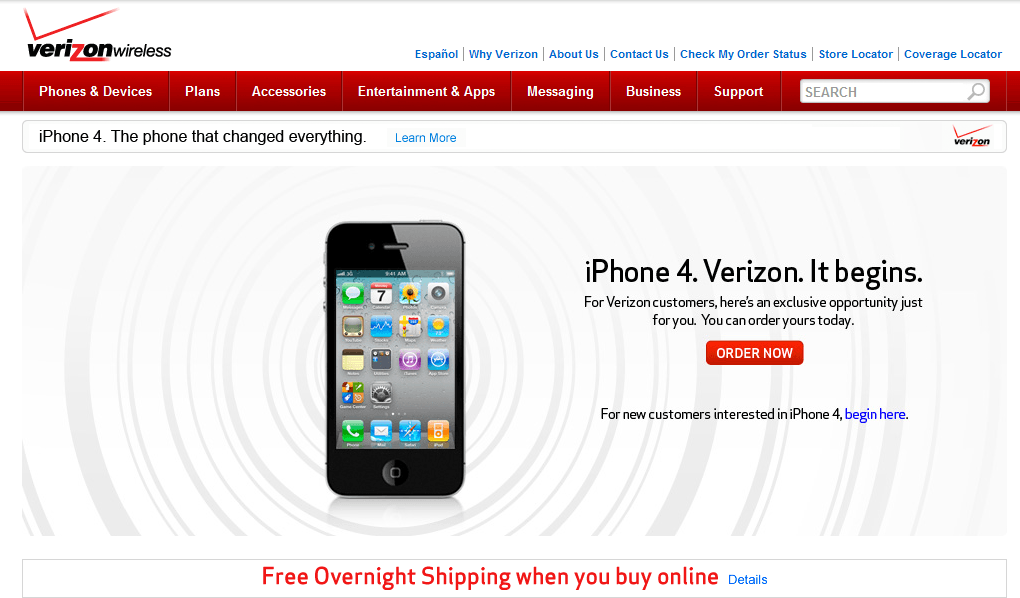
Shhh... Bright House's fiber network is a secret.
Volusia County’s consideration of a community-owned fiber optic network has been scoffed at by incumbent cable provider Bright House Networks, which claims the network is “redundant” and unnecessary.
The proposed fiber project is being promoted by Jim Cameron, vice president of government relations for the Daytona Regional Chamber of Commerce. The organization believes a public-private fiber-optic network could do wonders for economic development across the Fun Coast.
But the idea of stringing miles of fiber to connect area businesses to a gigabit-speed network brought rolled eyes from the folks at the cable company.
“We have miles and miles of fiber-optic lines in Volusia County,” Donald Forbes, senior director of corporate communications for Bright House told the Daytona Beach News-Journal. “Where anyone is willing to do business with us, we can make it happen . . . You want it, we’ve got it.”
But area businesses supportive of Cameron’s initiative are mystified by Bright House’s secretive-fiber-network, because few ever heard of it before.
Jason Frederick, business development director for WorkSmart MD, a Daytona Beach medical billing company, was just one example. The News-Journal reports Frederick was surprised when he was told that Bright House claims to have fiber lines in the county that can deliver Internet at one gigabit per second, about 200 times faster than average broadband service in the U.S., or faster.
“I haven’t heard anything about Bright House offering one gig, and my tech guy is laughing (incredulously) right now,” said Frederick.

"This series presents information based in part on theory and conjecture. The producer's purpose is to suggest some possible explanations, but not necessarily the only ones, to the mysteries we will examine."
In Search Of… Bright House’s Mystery Fiber
Bright House declined to quote pricing for access to their fiber network to the folks at the News-Journal, so Stop the Cap! called Bright House Networks’ Business Solutions department this morning posing as a new business customer looking for fiber optic access.
STC: We were calling to gather information about getting broadband service for our new Internet business. Can you tell me what kind of broadband services you have available?
At this point, Bright House asked us a ton of questions about where the business was located, what we intended to do with the connection, how many employees we had, etc. After feeding them answers, we got them to narrow down some basics, even as they tried to have a sales representative come out and meet with us (we explained they would have to fly to New York to manage that, and they should bring a shovel if they come.)
Bright House pointed us to their website for basic details, but stressed individual plans could be customized to meet our needs. That was the invitation we were looking for.
None of these plans seemed at all fast enough for our needs, we explained. The maximum plan on their website, 50/5Mbps, didn’t even come close. Where was the 50/50 or 100/100Mbps plans? What if we needed a gigabit? Didn’t we read they ran a fiber network?
Bright House: We do run a fiber network, but it’s a special kind known as a hybrid fiber/coax network. That is the most proven technology out there, installed to millions of homes and businesses across the country for more than a decade.
STC: Then all-fiber networks are unproven?
Bright House: In a way, yes. But more important, they are enormously expensive.
STC: How expensive?

It would cost you this much.
Bright House: We spent millions on ours.
STC: So you are saying if we wanted Bright House to deliver fiber to our business, it would cost millions?
Bright House: Probably not that much, but it would probably be a waste of money because it was so expensive. We service business customers all over central Florida, and I’ll be honest none of them really need fiber — it would be a waste of money. We couldn’t even give you a price for fiber because nobody ever asked us before.
STC: Wow, I am surprised nobody has even asked. Our business would want symmetrical broadband so our upload and download speeds would be the same. We also don’t want to pay an outrageous amount of money for it. What would Bright House charge for a symmetrical connection?
Bright House: One of our account specialists would have to talk with you about that. Our network was designed to deliver faster download speeds because that is what our customers want.
STC: Well, not every customer.
Bright House: I understand that, and it sounds like you are a special case. I think you’ll find we deliver the best service in town for business customers, and we sure do a lot better than AT&T. Have you spoken with them about their service?
 STC: We don’t want DSL.
STC: We don’t want DSL.
Bright House (laughing): I can certainly agree with you there. AT&T is a good company for what they do, but I am proud to say we do better. And we can give you cable television and business phone service in one package.
STC: Yes, but we’re probably getting ahead of ourselves. How much would it cost for just the broadband service?
Bright House: Before we quote you a price, we’d really like to sit down with you or a representative of your company so we can explain our whole product line and the benefits we offer. Is there someone down here we could meet with?
STC: Not yet, but I appreciate the information and we can always call you back.
(We did learn from another source 50/5Mbps business class service costs around $190 a month from Bright House.)
So Bright House fiber remains elusive, even after our call. Connected Nation, which has direct ties to Big Telecom, couldn’t find any fiber across the area either. That was surprising, considering the large telecom companies help manage their operations:
The Florida Department of Management Services is running Connected Nation’s efforts in the Sunshine State.
If the goal is widespread fiber-optic coverage, then Connected Nation’s map shows Florida sorely needs a fiber dietary supplement (Metamucil-optic?). Only a small portion of the state — around Orlando and to the south, and around Tampa and along the surrounding Gulf Coast — has fiber coverage, according to Connected Nation’s survey results.
Jessica Ditto, Connected Nation communications director, said the map only reflects spots where fiber-optic lines run to homes, and that Bright House might not have responded accurately to the survey. Bright House’s Forbes said he hadn’t heard of Connected Nation.

You didn't want this anyway, did you?
Another indictment for the useless work Connected Nation does for large sums. If a major provider doesn’t answer the questionnaire, broadband from that provider apparently does not exist as far as Connected Nation is concerned.
Finding fiber is Daytona is turning into that commercial for Honey Nut Clusters cereal. It’s got to be around somewhere.
The county director of economic development, Phil Ehlinger, suggests it is all around us even if we can’t see it at first glance.
“I am not aware of anyone (in the business community) who is unable to get the service that they want,” Ehlinger told the newspaper. “Bright House and some of the other folks, AT&T, they have been putting in fiber optic all over the county.”
But the important question left unanswered is whether or not you can access it. For individuals, the answer is clearly no. Bright House believes its network is plenty fast enough, and AT&T didn’t want to talk to us in time for today’s story. But phone companies, already vulnerable in the broadband speed race, prefers to deflect the question, arguing you don’t need that speed anyway.
Fiber optics delivers the fastest broadband experience, period. But when providers don’t sell or promote the service, it’s easy to suggest nobody wants it.
But not too far away, in communities like Chattanooga, and several areas in North Carolina, they -do- want it. Even Verizon FiOS, a growing presence in the northeastern United States, has won over business and residential customers to fiber-fast broadband. In many cases, the network sells itself.
But in central Florida, Bright House won’t sell the service to you even if you ask. It’s apparently the best kept secret in Daytona Beach.
[Updated 2/4/2011 — Don Forbes attached a reply to a piece on Broadband Reports that quotes from our piece:
Bright House Networks does in fact provide Fiber to the Premise (FTTP) – or what is known in the business services market as “dedicated access” – to its business customers who want this type of bandwidth. We work directly with our business customers to provide solutions tailored to meet their specific needs. We currently serve more than 3,000 Florida business locations directly with fiber. We currently offer speeds up to 1 Gbps, although it should be understood most business customers do not require 1Gbps speeds. Residential customers, at this time, do not need the bandwidth offered with dedicated fiber – however, Bright House has led the industry in comprehensively deploying next-generation bandwidth services (DOCSIS 3.0) to its’ entire footprint in Florida – current speeds offered are 50 Mbps with the ability to offer much higher. We provision our network according to our customers’ needs.
As a private company, we do reserve the right to share specific proprietary details of our network and our business for competitive reasons. However, it is no secret that we offer the above services.
It apparently is a secret to the people taking calls at Bright House’s business services hotline at 1-877-424-9246. That’s the number we called yesterday to inquire. The results are noted above. I’d make two observations:
- The point of our piece was partly to confirm whether fiber is a big secret in the Daytona area, as was the implication. In our experience, it was.
- Once again, another provider — this time Bright House — has made the declaration that residential customers don’t need fiber to the home access, something Verizon and many municipal/community-owned networks would strongly disagree with. We do as well. As long as phone companies compete using DSL, cable companies can safely make this claim and it won’t harm their business. But if a far faster fiber to the home network arrives in town delivering far faster speeds (at equal or lower prices), Bright House, and other companies like it, could be in trouble — especially if their new competitors market themselves well.
We stand by our piece, which documents our direct experiences with Bright House Networks business class customer service.]
 Verizon Wireless isn’t entirely rolling out the welcome mat for new iPhone customers. PreventCAPS, one of our regular readers, dropped us a note indicating Verizon quietly added something new to the terms and conditions for new customers as of Feb. 3rd, which just so happens to coincide with the date the company started taking orders for the Apple iPhone — it reserves the right to throttle your speeds and “optimize” your browsing experience with caching and network management techniques that could reduce the quality of online videos and other bandwidth-intensive graphics.
Verizon Wireless isn’t entirely rolling out the welcome mat for new iPhone customers. PreventCAPS, one of our regular readers, dropped us a note indicating Verizon quietly added something new to the terms and conditions for new customers as of Feb. 3rd, which just so happens to coincide with the date the company started taking orders for the Apple iPhone — it reserves the right to throttle your speeds and “optimize” your browsing experience with caching and network management techniques that could reduce the quality of online videos and other bandwidth-intensive graphics. These kinds of “network management” techniques, which include speed throttles, reduced quality graphics, and caching (which can result in stale web pages being served to your mobile device), are all made possible by the Federal Communications Commission’s failure to implement Net Neutrality protections for wireless providers. While Verizon stresses it will treat all content to the same network management techniques equally, the “improved” broadband experience Verizon claims to offer is more likely to improve the company’s bottom line from reduced spending on network upgrades.
These kinds of “network management” techniques, which include speed throttles, reduced quality graphics, and caching (which can result in stale web pages being served to your mobile device), are all made possible by the Federal Communications Commission’s failure to implement Net Neutrality protections for wireless providers. While Verizon stresses it will treat all content to the same network management techniques equally, the “improved” broadband experience Verizon claims to offer is more likely to improve the company’s bottom line from reduced spending on network upgrades.

 Subscribe
Subscribe









